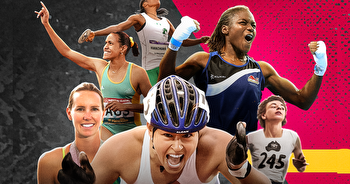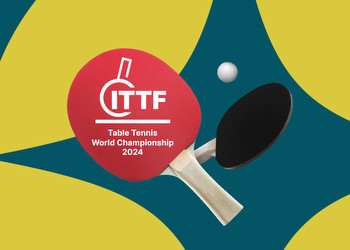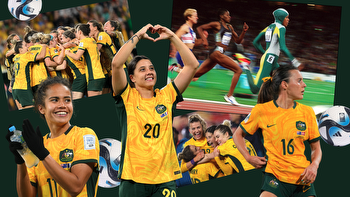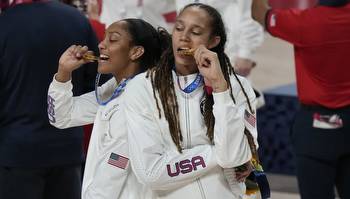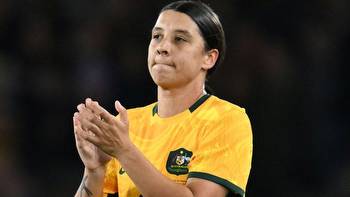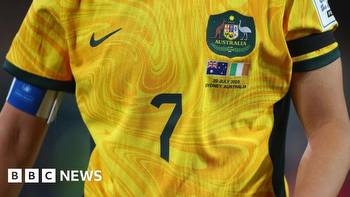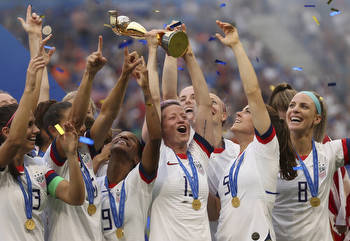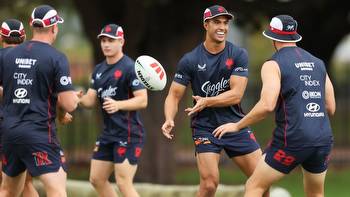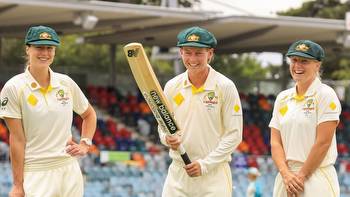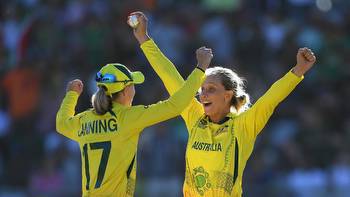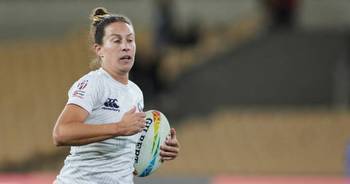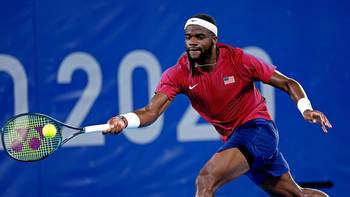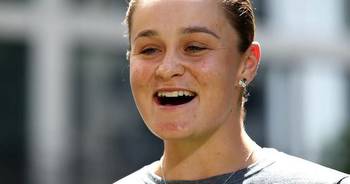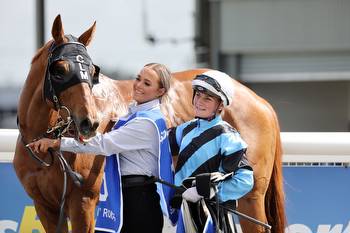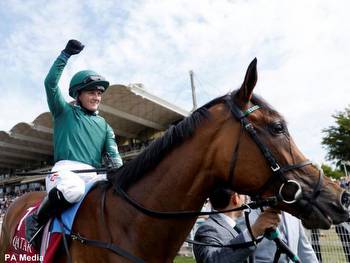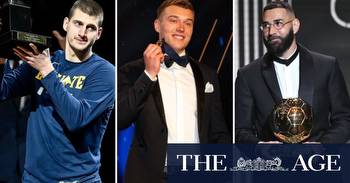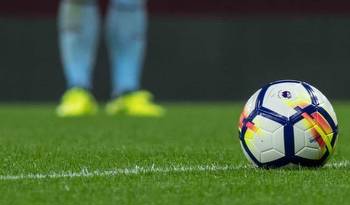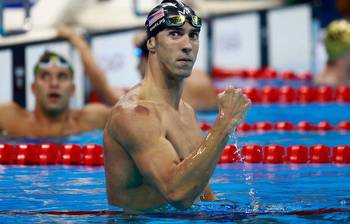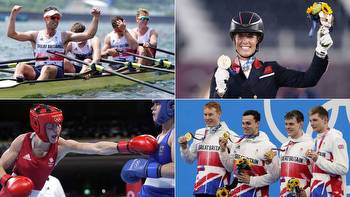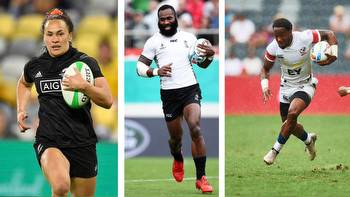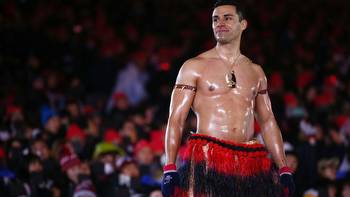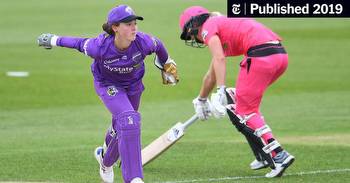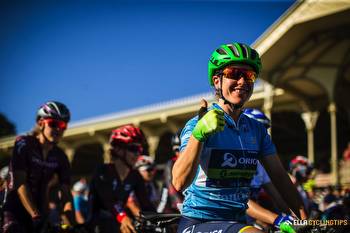Top 10 moments in Australian women's sport in 2016
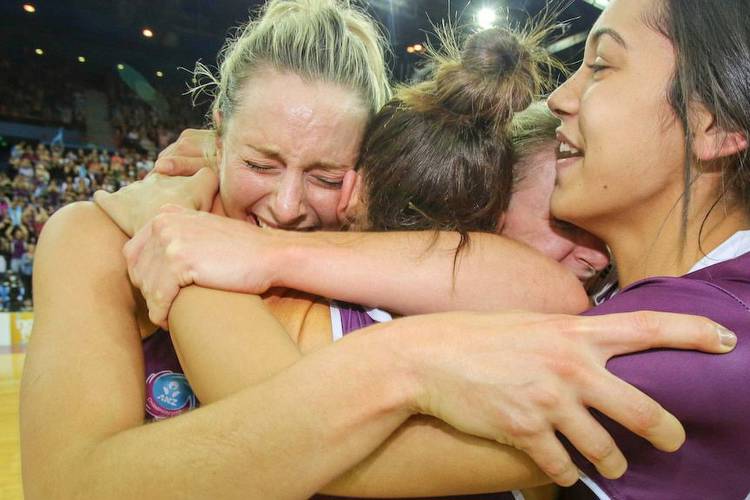
Who ever thought it would be considered cliche to use 'watershed' and 'women's sport' in the same sentence?
Female athletes themselves will tell you how incredible the influx in attention and support has been over the past two years, and yet I find myself struggling to pick the very best from an endless list of achievements Aussies have tallied up this year.
Here we relive 2016's top 10 moments where sportswomen defied the odds, forced their way to centre stage and demanded the recognition they have so long deserved.
The women's rugby sevens side has quickly become the nation's favourite team in their four short years of existence.
Winning the first three events on the world series calendar, they held firmly to the world's number one title throughout the entire 2016.
On to Rio, where fans may have been troubled by deja vu of New Zealand's long running dominance in the men's game.
The Pearls were down 5-0 in the gold-medal match, but such is the fast-paced sevens format, a swing in momentum saw them fight back to clinch top spot on the podium 24-17.
This team have truly redefined the image of females playing tough footy and have become great role models for the code and young girls all the same.
After years on the pro surfing circuit, Tyler Wright decided to make a definite challenge for this year's world crown.
Spurred on by her brother Owen Wright's head injury and the battle he faced to get back to health, a change in perspective made all the difference when it came time to wade out into the water.
Wright dominated the women's tour, taking five from 10 tournament wins and went out on a high with first place at the Maui Women's Pro just last week.
One of the greatest things about her composure is her sportsmanship; no matter win or lose Wright always displayed a genuine level of praise and appreciation for her opponents.
The Blues have certainly been overshadowed in State of Origin the past decade, but the curse was much more damning for their female counterparts, until this year.
New South Wales was facing an 18-year drought should it lose to the Maroons again in 2016 and Queensland was confident it was going to happen, with captain Steph Hancock even declaring she would quit should her side lose the annual interstate clash.
Mistakes and nerve-wrecking desperate defence stopped the Blues from scoring points until midway through the second half en route to an 8-6 win.
The outpouring emotion from players, staff and fans was contagious as it set in they had made history with a maiden victory.
2016 was a landmark year for Australian netball. We launched next year's domestic competition, welcomed three new teams and farewelled the long standing trans-Tasman league.
The Swifts and Firebirds were set for another final showdown - same time, same place as what many branded last year the best of its kind.
Somehow the battle went one better, with not one, but two bouts of extra time.
Much the same as 2015, its result meant heartbreak for the Swifts and everlasting glory for the Firebirds, who will always be remembered as the strongest entity in that competition.
Nostalgia made the climatic end extra special, establishing a legacy for the new league, its stars and future battles on Australian shores.
The Southern Stars continue to impress at international level but the first edition of the Women's Big Bash and its all-Sydney final changed women's cricket forever.
Placing female cricketers on accessible and flashy platforms, the competition included big hits, impressive feats and plenty of tight finishes.
Its intensity produced such high ratings that extra games were broadcast on TV, with many upgraded to mainstream channels.
The influence was felt beyond national level too, with the Women's Cricket Super League in England a result of Australia's success; the Governor General's XI introduced as an annual event; a number of young guns promoted to debut for the Southern Stars and the push for better pay resulting in NSW's team being elevated to professional status.
Women's AFL exhibition matches have been in play for a number of years now, but the launch of an official women's competition sent the Australian sports landscape into a frenzy.
Talent searches were conducted around the country and elite female athletes from other codes were encouraged to have a go.
Accomplished cricket, soccer and basketball stars are all set to debut in the inaugural league early next year, drawing fans and attention from their respective codes along the way.
To top off the announcement, a Bulldogs-Demons exhibition match, which took the primetime TV slot during a men's bye round in September, enticed the largest overall average audience in Melbourne for any Saturday match of the home-and-away AFL season.
Proving the demand is there for a women's competition and accessible viewing.
The Matildas saw a huge rise in support on the back of their efforts at last year's FIFA World Cup, but their performance in this year's Olympic qualifiers saw it increase tenfold.
Moving to fifth in the world and securing their spot at the Games for the first time since 2004, the team was undefeated through the qualifying stages, which included a 9-0 victory against Vietnam on the road.
They blew us away with complete domination and pride, Lisa de Vanna famously declaring they were on a mission and not leaving Brazil without a medal.
While their Rio campaign ended in a heartbreaking quarter-final penalty shootout against Brazil, the country was quick to declare them winners for the passion and determination they exuberated throughout the entire journey.
Modern pentathlon is a sport that has long been on the fringe of Australia's culture.
Enter Chloe Esposito, who after placing seventh at the London Olympics, moved to Budapest with her father and brother to improve her chances in 2016.
For three years she sacrificed it all, leaving behind a fiance, mother and sister to pursue her dream.
In the last leg of the event in Rio, she started far behind a podium placing, in that same seventh spot to which she had been kept just four years earlier.
But with an accurate eye in the pistol shooting, Esposito pulled off the underdog fightback that resonates with Australia most.
Clinching Australia's first gold medal in the sport she completed the course with an Olympic record 1,372 points, putting modern pentathlon on the map.
Milly Tapper was not content just qualifying for the Rio Paralympics. She wanted to be an Olympian and for more than a decade had been pushing to make that a reality.
In 2016, Tapper's top three placing at the Oceania Championships booked her an earlier ticket to Rio.
After bowing out in a sudden-death clash with Brazil's Caroline Kumahara (200 world ranks ahead), she backed up at the Paras finishing fourth in doubles with partner Andrea McDonnell.
As Australia's first Olympian-Paralympian, Tapper defied expectations surrounding para-athletes; competing against the world's best in both competitions and showing just how 'abled' she is.
By now you would have established most of the biggest moments in Australian sport this year involved 'firsts'.
Two-time rowing world champion Kim Brennan has always been a perfect role model and a respected figure.
Mainly for her strong stance advocating women's sport and zero tolerance for those who have not reached top level purely by grit and determination.
After almost sinking in her first race at the Rio Olympics, with heavy expectation having won silver in the same event at London, she stuck to her guns and put the wobbly start out of mind to claim Australia's first gold in the Women's Single Skulls.
A patriotic and intelligent woman, her win proved everything she had been fighting for - clean competitors who through hard work reap success.
Most teams dream of pulling off a championship-premiership double and now they have Melbourne City to look to.
The side recruited well leading up to it's inaugural season, coaxing various Melbourne Victory players to jump ship and signing world-class talent like Lisa de Vanna, Kim Little and Jess Fishlock.
With their stacked side, many named them as the team to beat but questioned whether a team with so many stars would actually have cohesion once it came time to play.
In the early stages, they silenced all naysayers, outclassing every well-established team that stood in their way between the top of the table and trophy.
All in all, their efforts in an eight-year-old competition provided proof of what can be done when the same level of resources and support are garnered to men's and women's football.
Each of the above were prominent in not only women's, but generally in Australian sport this year.
Judging by crowdsourcing, they were your favourites too; moments that will stick in your mind whenever you reflect back on 2016.
I bet you didn't even notice I snuck in an extra one ... It was simply too hard to choose just 10.

